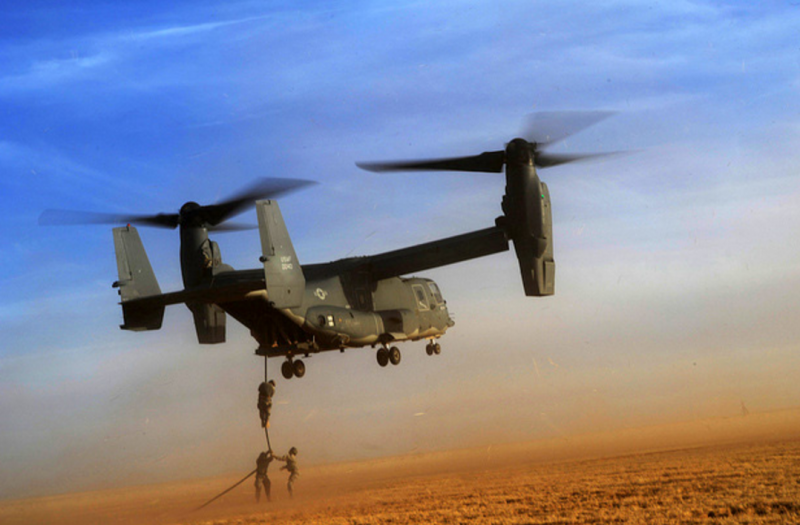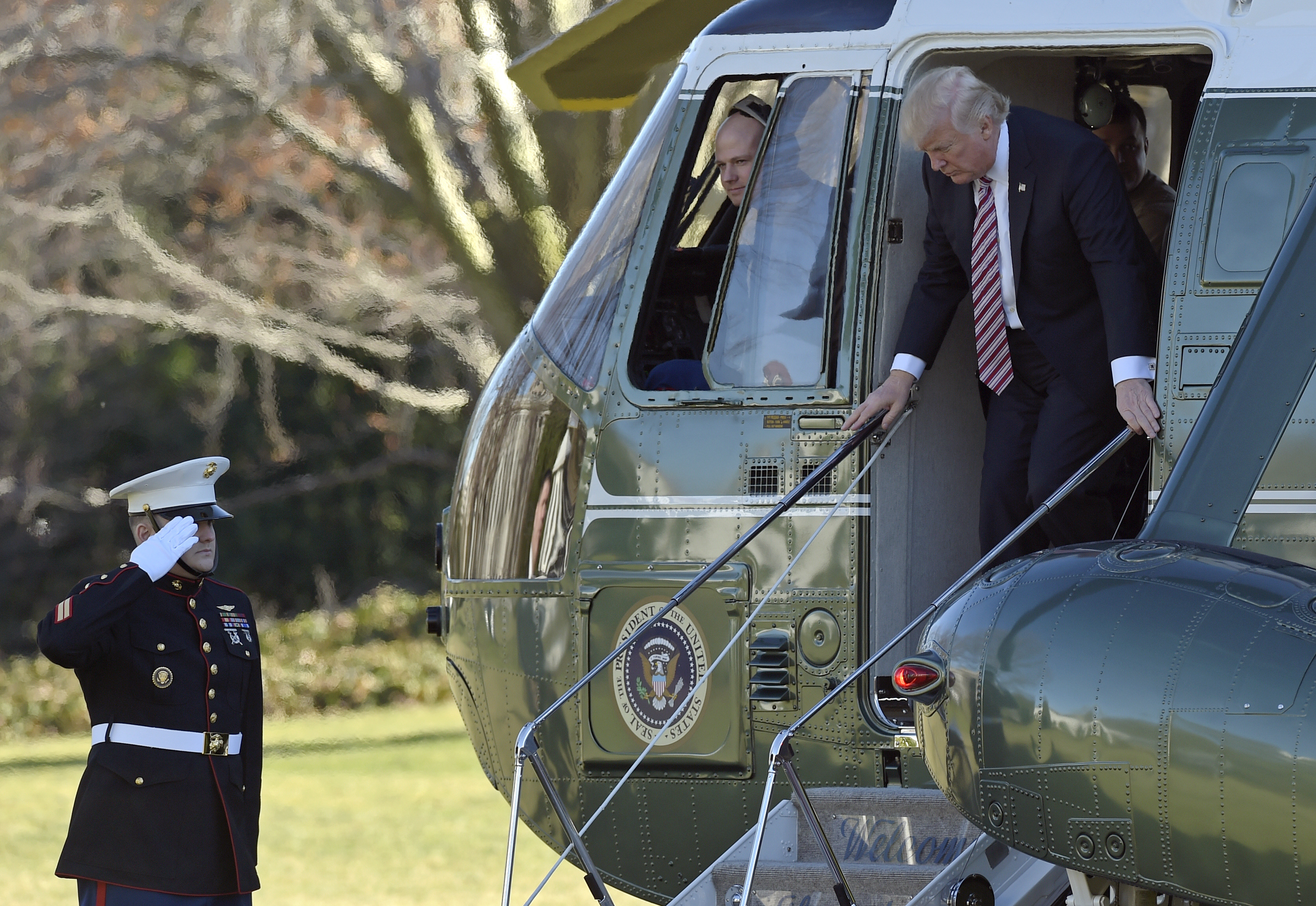President Donald Trump made a surprise, unannounced trip on Wednesday to honor the return of slain US Navy SEAL Chief Petty Officer William (Ryan) Owens.
Owens died during a raid on Al Qaeda in Yemen, along with about 30 civilians and 14 members of Al Qaeda. Three other Navy SEALs were wounded in the raid, and a $70 million MV-22 Osprey belonging to a Marine quick-reaction rescue force had to be destroyed.
Trump issued a statement after the news of Owens’ death expressing his sorrow and praising the bravery of the US service members who gathered “important intelligence that will assist the US in preventing terrorism against its citizens and people around the world.”
After the operation, Trump had a long phone call with Owens’ family. Owens represents the first combat loss during Trump’s presidency.
"You never want to call something a success 100 percent when someone is hurt or killed" White House press secretary Sean Spicer said on Wednesday of the raid in Yemen.
However, an unnamed official told NBC News that "almost everything went wrong" with the raid, citing the death of an 8-year-old girl and several other civilians, the burning of a house, and the intentional destruction of the Osprey.
According to Bill Roggio, editor of the Foundation for Defense of Democracies' Long War Journal, raids like the one in Yemen were common under President Barack Obama and will likely continue under Trump.

Roggio told Business Insider that the US had taken out prominent Al Qaeda figures in Yemen leading up to the raid and that the Al Qaeda branch in Yemen had indeed been plotting attacks on the US.
"This is a branch that's at the forefront of launching plots to blow up airlines and attack Americans," Roggio told Business Insider. "They have a bomb maker, Ibrahim al Asiri, who has designed some complicated bombs and directed attacks against the US."
Despite the death of Owens and the approximately 30 civilians, Roggio said the raid's success would ultimately be determined by the intelligence gained by the US.
Roggio said the US monitors terrorists via drones and their online presences, but "you can only get so much from that, and they know what they're doing."
"If you really want to know what's on their hard drive, you have to confiscate it," Roggio said.

